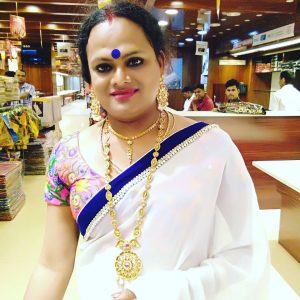Bhubaneswar: Odisha’s LGBTQ community has not been able to organise the annual Gay Parade during Pride Month for the second year in succession due to the coronavirus pandemic. This has neither dampened their spirit nor muffled their voice.
Anyway, the mood in the community is pretty upbeat with the Odisha government announcing a slew of welfare measures for them in the recent past, the latest one being allowing the transgender community to apply for the posts of constables and sub-inspectors in the state police department.
Earlier in 2019, five transgenders were appointed as security guards in a hospital under the Nirmal scheme. In 2020, the community was also included in the state’s monthly pension scheme, Madhu Babu Pension Yojana (MBPY).
Odisha is one of the states with a higher transgender population, says a study, ‘The Status of Transgender Population in Odisha’ adding that 5.75 per cent of the transgender households of rural India are in Odisha and 1.5 per cent of the urban transgender population in the country is in the state.
Despite the state government’s inclusive stand with regard to the community by providing them employment opportunities, their day-to-day struggle at the ground level continues, with fighting the stigma of their sexual orientation almost on a daily basis.
“The government should now focus on behavioural change towards us and also address the issue of violence against us. The perception needs to be changed at the grassroots by safeguarding children at the school level. That’s where the badgering begins,” Meera Parida, president of All Odisha Kinnar Mahasangha and the first transgender vice president of Biju Mahila Janata Dal, told Odisha Bytes.

According to Meera, many children succumb to jibes in school by attempting suicide. “There should be a safety net for such children by providing them counselling. Positive stories normalising the third gender would help in sensitising people. There should be strict rules against the harassment of transgenders on the lines of the anti-ragging law,” asserts Meera.
Not mincing any words, Pratap Sahoo, president of All Odisha Eunuch and Transgender Association pointed out the loopholes in the state government’s announcement allowing the transgender to apply in the police department. “They will be applying in the women’s category making the competition tougher. There should be reserved seats for transgenders on the lines of SCT,” he told Odisha Bytes.
“Secondly, many of them will not have the stamina to qualify for the physical fitness test since they have already gone under the knife and thirdly, they may not be able to meet the educational criteria for selection,” he added.
The census data on transgenders reveals the low literacy level in the community, just 46%, compared to 74% literacy in the general population.
Self-stigma induced by societal pressure is one of the banes of the transgender community in Odisha. A study on the community reveals that they are not ready to be identified as transgender and get officially registered due to social stigma.
The total population of transgenders in the state is around 70,000 of whom only 2000 agreed to be identified as transgenders. The unavailability of reliable data about the demography, socio-psychological status, education, and economic status, and livelihood status and opportunities of transgender has been affecting the effective implementation of welfare schemes for them.
While transgender activists estimate the numbers to be six to seven times higher, they are thrilled that such a large number of people identified themselves as belonging to the third gender. Of the total number of transgenders identified by the census, almost 55,000 are in the 0-6 population. This has come as a big surprise to the community as they did not expect so many parents to identify their children as belonging to the third gender, the study revealed.
On the issue of violence, Meera says it need not necessarily be physical. “It can be covert also, like not giving us a house on rent or compelling us to hide our identity. Anyway, who decides that we are the third gender?” she asks.
Despite the vicissitudes, she’s optimistic that like other ills in society, such as widow and child marriage, dowry, etc., the law will be on their side in the years to come.
“Going by the fact that we are the third gender, the fight for equality is still on between the first two genders. Hamara time aayega,” she sums up on an optimistic note.
Odisha Transgender Policy 2017
The Government of Odisha realises that focusing on gender identities alone will be inadequate to address their poverty, discrimination and exclusion and therefore endeavours through this policy to bring about social justice, economic equality and create real opportunities for transgender people to participate and succeed in society.
Vision: To achieve a fair, more equal and prosperous society where Transgender persons have equal voice and opportunities to participate and succeed.
Mission: To do justice to Transgender persons through policy directives and programmes so that dignity, equality, justice (justice as fairness, distributive justice, and affirmative action justice), freedoms, life, liberty and fraternity become meaningful.



